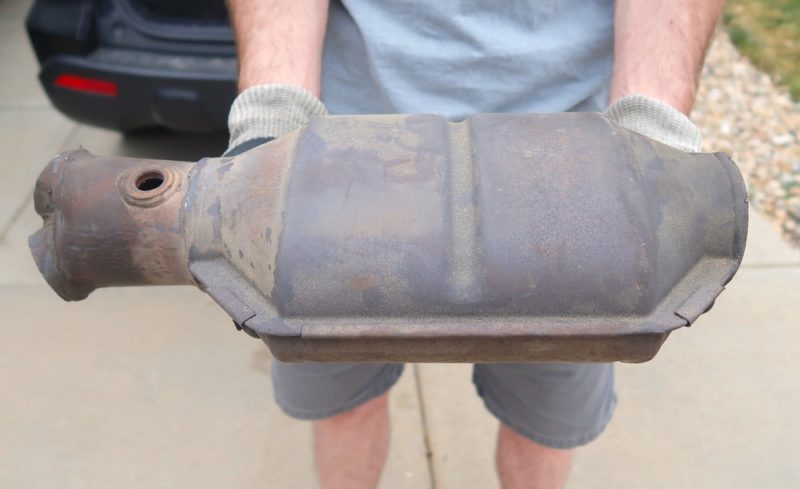Auto Club Warns Catalytic Converter Thefts Are Spiking; Offers Vehicle Owners Tips to Prevent Becoming a Victim
Catalytic converter thefts are continuing to plague Southern California vehicle owners, two years after initially spiking during the pandemic, according to the Automobile Club of Southern California. New insurance data from the Auto Club reveals that claims for catalytic converter thefts have increased by more than 1,000% since 2019.
July is National Vehicle Theft Prevention Month, as such, the Auto Club is reminding motorists to take steps to protect their vehicles and catalytic converters.
Catalytic converters change harmful substances in a car’s exhaust gasses (carbon monoxide, nitric oxide, nitrogen dioxide and hydrocarbons) into less harmful substances like carbon dioxide and water vapor by means of chemical reactions. The earning potential for catalytic converters is high when they are sold to metal scrappers. The sales may not always be tracked by law enforcement. Two of the three rare earth metals used in catalytic converters, rhodium and palladium, are worth more per ounce than gold.
While almost any car could be a target for catalytic converter thieves, SUVs and fleet vehicles have been the prime targets. Additionally, Toyota Priuses have been targeted because they have two catalytic converters and have more of the precious metals.
Once stolen, thieves may be able to sell detached catalytic converters for hundreds of dollars to scrapyards or internet buyers. Once sold, catalytic converters can be resold to recyclers interested in the expensive metals inside them. Typically, recyclers will pay $50 to $250 per catalytic converter. Unfortunately for the victims of catalytic converter theft, the cost to replace the part could cost between $1,000 to $3,000, depending on the car or truck, and the vehicle may not be legal to drive until the part is replaced.
Catalytic converter thefts started increasing in 2020 as the pandemic led to higher unemployment, more people working from home and lots of high riding vehicles such as trucks and SUVs left idle or being driven less.
“For many people, our vehicles are some of the most expensive purchases we make during our lifetimes, so protecting them should be a priority,” Auto Club spokesperson Doug Shupe said. “With the cost of many goods and services on the rise these days, the last thing vehicle owners need is a costly car repair.”
Not only did catalytic converter thefts increase at the start of the pandemic, but overall vehicle theft increased. In 2020, vehicle thefts increased by nearly 20 percent compared to 2019, and another 7.7% from 2020 to 2021, according to the California Highway Patrol.
The Auto Club offers the following tips to prevent catalytic converter and auto theft:
- When possible, park in well-lit areas and close to building entrances.
- If you have a garage at your house, park your car inside and keep the garage door shut.
- If you own a high clearance vehicle like a truck or SUV, store it in a secure location.
- Have the catalytic converter welded to your car’s frame, which may make it harder to steal.
- Look into buying a converter-protection device which have been developed for the Prius and other vehicles targeted by thieves.
- Consider engraving your vehicle identification number (VIN) or license plate number on the catalytic converter – this may help alert a scrap dealer that it was stolen and make it easier to find the owner.
- Security devices, such as locks, are available that attach to the converter, making it harder to steal.
- Calibrate your car’s alarm to go off when it detects vibration.
- Carry a good insurance policy. Most insurance companies cover catalytic converter replacement costs if the vehicle owner has the optional comprehensive coverage, which covers damage to a vehicle not caused by a crash.
Image Sources
- Catalytic Converter: Shutterstock




![Enrolling Now, Rewarding Careers Ahead [Sponsored]](https://ukenreport.com/wp-content/uploads/2024/04/COD_heroes_1-1385-2-440x264.jpg)


